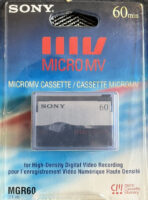Want to protect your valuable video from being copied without your permission? The US copyright laws are here to help you, but these laws and procedures have changed. So it is wise to visit the copyright office web site to get it right, but we’ll summarize it. The fact is that your video is copyrighted the moment it is created and “fixed” in a copy such as a DVD or online video. Each element of the video is merged into one and covered by one copyright. On the video and near or on the title screen you should place the line:
Copyright © 2022 (Copyright Owner Name Here) All Rights Reserved
The Copyright Office says you need either the word copyright or the symbol, but there are good reasons for printing it as we have above. In addition to placing this in the video, also include this line in your packaging such as a DVD case.
The Case For Registering Your Copyright
If your video was created on or after January 1, 1978, the Copyright is in effect for the author’s life plus 70 years after the author’s death. For works made for hire, and for anonymous works, the duration of copyright is 95 years from publication or 120 years from creation, whichever is shorter.
You may have heard of the “poor man’s copyright.” This is the practice of mailing yourself a copy of the video and not opening it. While it might be dramatic in court to open a sealed and dated package with your video, it could be easily claimed that the package had been tampered with. There is no provision in the copyright law regarding this “poor man’s copyright.” Don’t fool yourself.
Even though your video is copyrighted when you create it, there is a good reason to register your video with the U.S. Copyright Office. With a proper registration you would be able to bring a lawsuit against anyone who infringes your copyright (copies your video without your permission).
This article will save you some time and summarize the information, I highly recommend you spend some time browsing through Copyright Basics
https://www.copyright.gov/circs/circ1.pdf and Frequently Asked Questions
http://www.copyright.gov/help/faq/ on the Copyright Office Home page. You’ll learn such things as How do I protect my sighting of Elvis? and Can I get a star named after me and claim copyright to it? In addition to those frivolous items, you will find much solid information about this important topic.
How To Register Your Copyright
To Register go to https://www.copyright.gov/forms/
and choose one of the three ways to register:
1. Entirely online through the electronic Copyright Office. This is the cheapest and fastest. Go to https://www.copyright.gov and click on Electronic Copyright Office (eCO). The fee is $35. You can mail your video or upload it in any of the following formats:
.avi (audio video interleave)
.mov (quicktime)
.mpg, .mpeg (Moving Picture Experts Group)
.rm, .rv (Real Media File)***
.swf (Adobe Flash formerly Shockwave Flash)
.wmv (windows media video)
Read the instructions carefully at https://copyright.gov/registration/
2. Partially online with the fill-In Form CO.
The fee is $50 You cannot download this form and then fill it out. It creates interactive bar codes as you fill it out which is kind of cool. You must fill it out online, then print it, and mail it along with a check or money order and your video with a written description, press release or summary. You cannot upload your video, but must mail it as described below. The instructions are at https://www.copyright.gov/forms/
3. Even though the Government is phasing out paper forms, you can still register with paper forms. For this you must use Form PA. This form is not available online. It must be mailed to you. You can request this by phone (202) 707-3000 from 8:30AM to 5:00PM EST Monday through Friday, except federal holidays.
The item you are copyrighting is referred to as a deposit because in the case of motion pictures and videos, you must send a non-returnable copy to the Copyright Office.
For Applications Filed on Paper and for Deposits, mail to:
Library of Congress
U.S. Copyright Office
101 Independence Ave SE,
Washington, DC 20559-6238
(Note: the 6238 of this zip code is the specific address for motion pictures and audiovisuals works like videos.)
Mailing Your Video
Send your video along with a separate written description such as a synopsis or press release. When registering with the eCO, you will receive a shipping slip through your printer. This is unique to your copyright and must be included with the video if you choose to mail it.
To avoid damage to your hard-copy deposit caused by necessary security measures, package electronic media such as audiocassettes, videocassettes, CDs, and DVDs in boxes rather than envelopes for mailing to the Copyright Office.
The fees change so don’t incur delays by sending the wrong fee. Call 202 707 3000 for the current fees.
How Will You Know They’ve Received It?
If you apply for copyright registration online, you will receive an email stating that your application has been received. Otherwise, the Copyright Office does not provide a confirmation of receipt. Currently, if you use a commercial carrier (such as Federal Express, Airborne Express, DHL Worldwide Express, or United Parcel Service), that company may be able to provide an acknowledgment of receipt by the Copyright Office. Due to the mail disruption, an acknowledgment of receipt for mail sent via the U.S. Postal Service, e.g., certified, registered and overnight delivery, may take several weeks or longer to receive. Claims to copyright may also be hand-delivered to the Copyright Office.
How Long Does It Take?
This can take some serious time. It varies, depending on the number of applications the Office is receiving and clearing at the time of submission and the extent of questions associated with the application. Current processing times are:
Processing Time for e-Filing: Most online filers should receive a certificate within nine months. Many will receive their certificates earlier.
Processing Time for Form CO and Paper Forms: Most of those who file on these forms should receive a certificate within 22 months of submission. Many will receive their certificates earlier.
Note: Whatever time is needed to issue a certificate, the effective date of registration is the day the Copyright Office receives a complete submission in acceptable form. You do not need to wait for a certificate to proceed with publication.
And I suggest that you don’t wait to register; if you want to take full advantage of the copyright law and its legal recourses, you should register your work within three months of publication.






How does one proceed in finding the actual owners of a video that is copyrighted?
See “How To Investigate the Copyright Status of a Work” at
https://www.copyright.gov/circs/circ22.pdf
Can you copyright a publicly shot video like a high school football game if you do not have permission from everyone shot in the video (players, coaches, fans etc.)?
John,
I am not an attorney, but I know you can film a game in a public place unless it is expressly forbidden. Many venues and performers do forbid recording.
When you create the video, you own the copyright.
But the issue of permissions of the people you film is a different question from copyright. If a person speaks on camera, you should probably have them sign a release like one of these: https://www.videouniversity.com/articles/releases-for-use-in-film-and-video/
Look for a book written by an attorney such as “Clearance & Copyright” by Donaldson.
Hi,
What is involved in copyrighting how-to-videos where you use screen capturing software to teach how to use another piece of software?!
where can i get more info about this.
i would appreciate your help!
-Oscar
Can you copyright paranormal footage ? If so what would it fall under ?
Hi Rita,
Any footage you shoot or create is automatically copyrighted. As explained above there is additional protection by registering your video with the copyright office.
Hal
Which form do I use for a video clip (30 seconds) that shows a an event?
Use the pdf form that is noted above. It is all explained. It doesn’t matter how long the video is or what the subject is.
I recorded myself playing instruments.
I was free-styling, so I don’t know if someone else
has played the way I do, already before me.
Can I still copyright my video?
And, if someone before me has played exactly like me,
does that negate my copyright?
Hi Andre,
If your song uses someone else’s music, it’s copyright infringement. I would do some checking. Perhaps a tool like SoundHound would help you. This is an app for smart phones, Windows and more that is pretty good at identifying songs. You’d have to play back your song only at the part where you think you might have used someone else’s music.
So if you discovered you had used other music, you would be infringing someone’s copyright. If it’s entirely your creation, then you own the copyright as soon as you “fix” it to a medium like CD, YouTube, etc.
If SoundHound can’t help you, I’d ask other musicians to listen. The pros I know can recognize even obscure music easily.
It’s a good question. I’m sure this has happened to other musicians.
Hi Hal, I like your regular emails. Very good content. I notice you encourage people to take up a business in digitising old video tapes and films etc
If someone were to do this, and advertised their work by using some of the digitised media from client’s original material…. even though its been edited, colour graded and corrected or grain removed etc… Is this infringing on copyright by the company? Or does the new digitised material belong to the company?
Hi Dom,
Glad you like the newsletters. As far as copyright, assume it is held by the owner. So I would ask their permission before using it for your own purposes even though you may be improving it. Some transfer companies use a preprinted contract which gives them permission to use footage or photos for promotional purposes. But the client must sign off on this.
A recent client of mine is 87 years old and in excellent shape. He had been a naval aviator and filmed a lot of the ships and planes he flew. Fun seeing the twin engine planes take off and land on a moving air craft carrier. I asked him about it. His explanation of the process was fascinating. So the transfer business, for me, is a lot of fun. He just picked that job up and brought me more things to transfer.